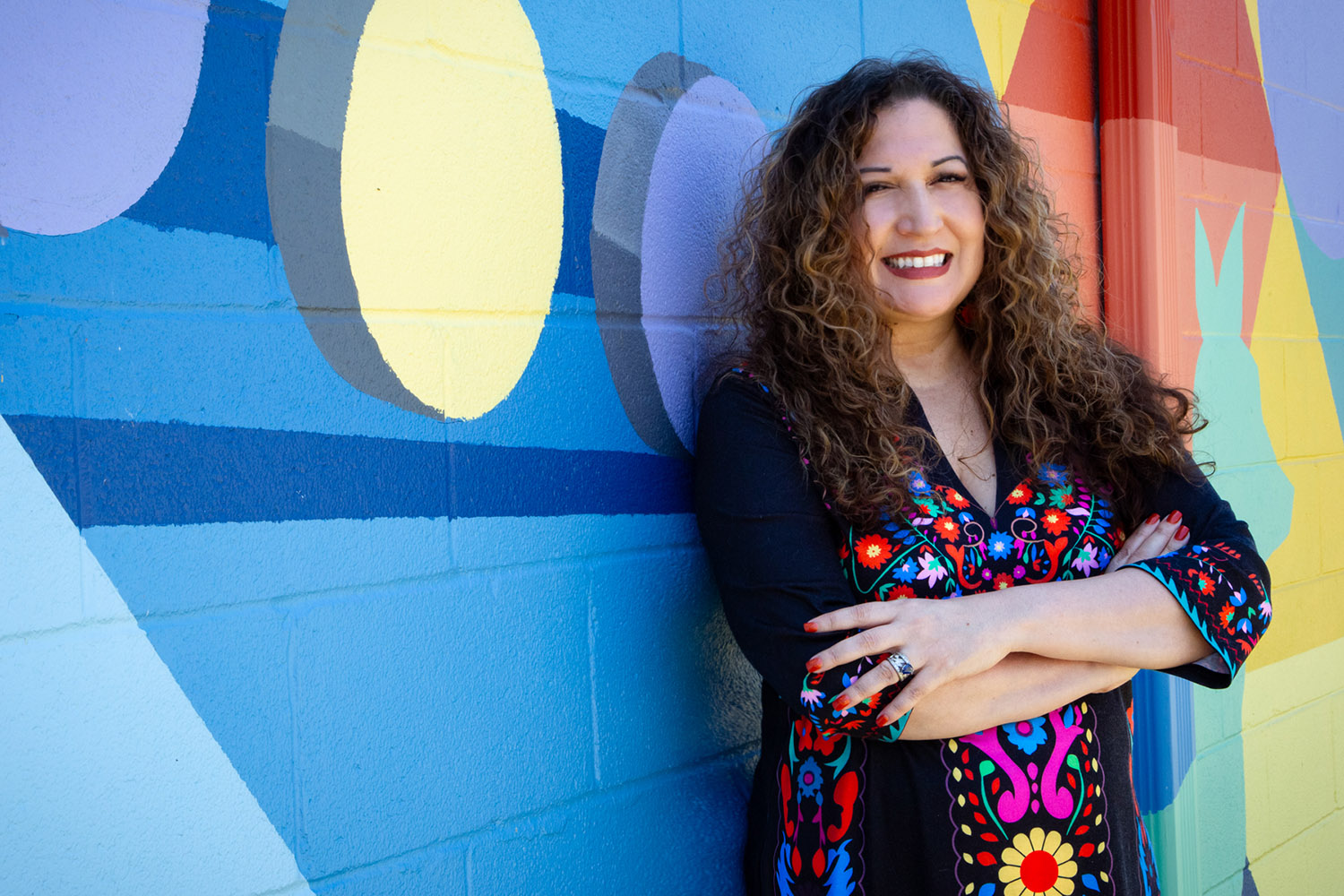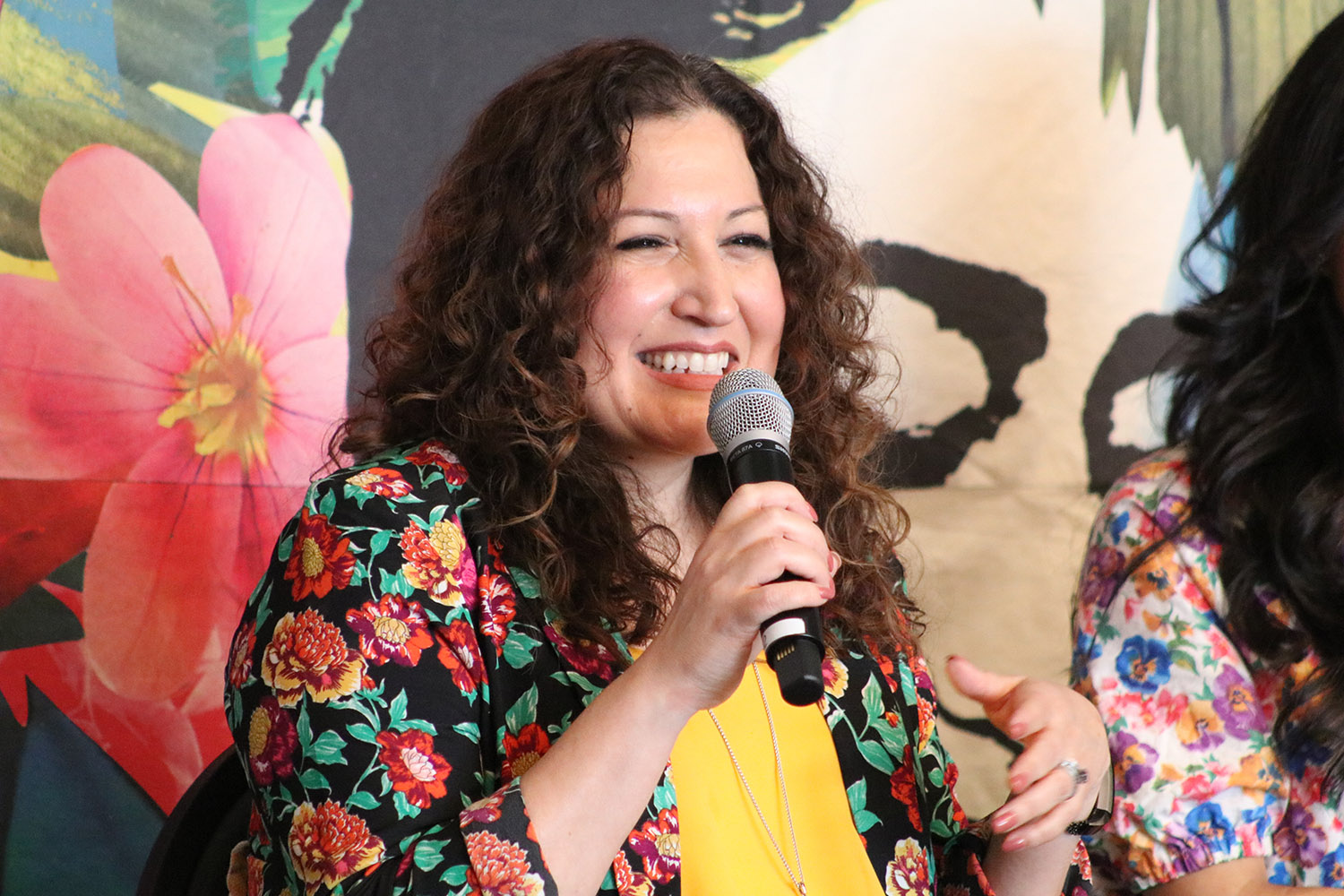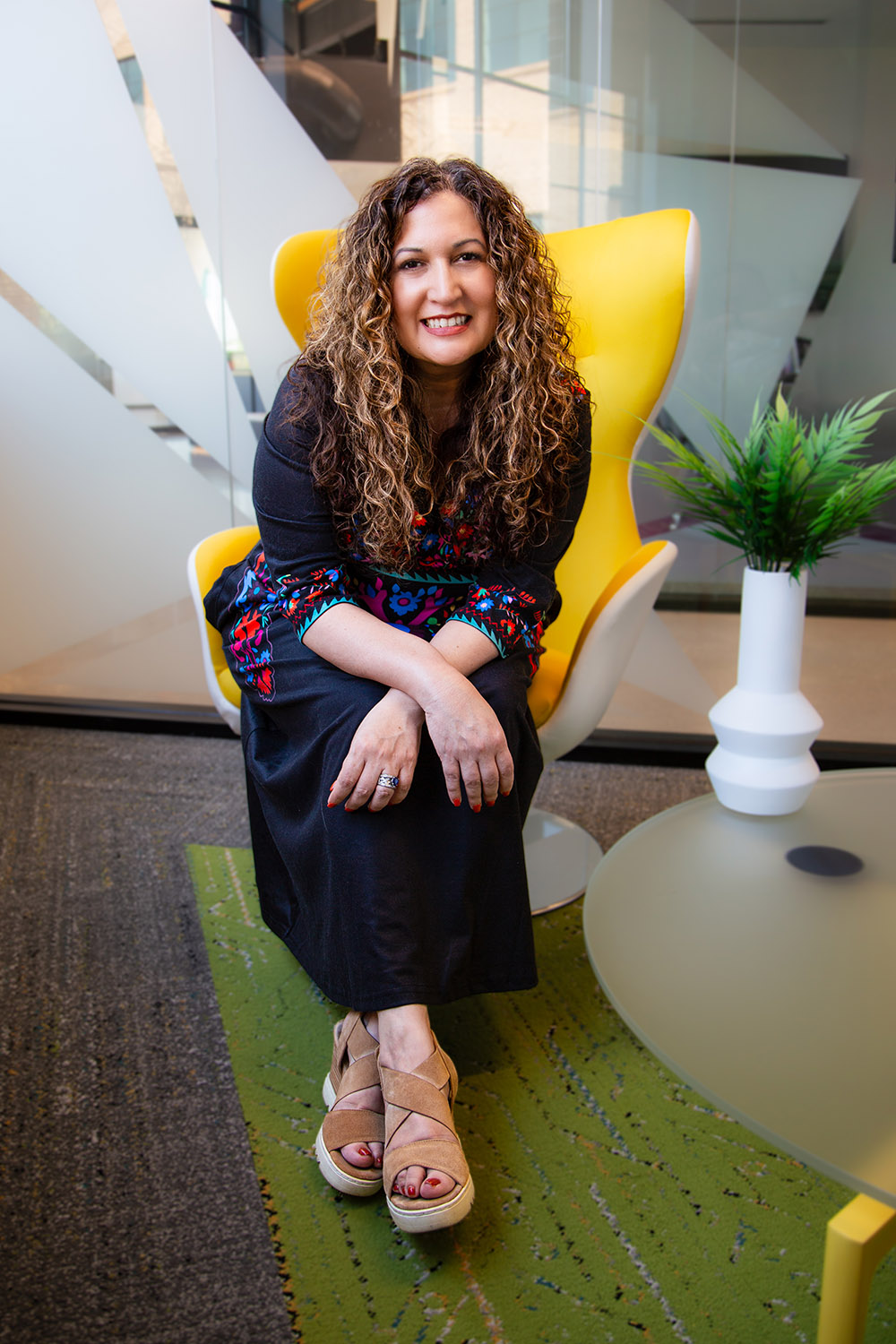Interview by Jennie Trejo. Photos provided by the Cannenta Foundation.
As we celebrate Hispanic Heritage Month, it’s important to recognize the leaders who are overcoming barriers and driving progress in mental health care within their communities. By addressing challenges such as language access, cultural sensitivity, and stigma, they are creating inclusive, empowering mental health services that honor the unique strengths of their communities. Despite 22 percent of Hispanics/Latinos experiencing mental illness, only 36 percent receive mental health services compared to 52 percent of their white counterparts (SAMHSA, 2023), highlighting the urgent need for culturally competent care.

One leader making a major impact is Dr. Leti Cavazos, DSW, LCSW-S, founder and CEO of the Cannenta Center for Healing and Empowerment and the Cannenta Foundation. Dr. Leti is dedicated to providing accessible mental health services to marginalized populations and has founded the Cannenta Foundation to break down financial and language barriers to care. Her innovative approaches have garnered numerous accolades, including the 2024 Leaders in Diversity Award by the Dallas Business Journal and the 2023 Quality and Excellence Emerging Business Award by the Greater Dallas Hispanic Chamber of Commerce. We sat down with Dr. Leti to hear about her journey and her commitment to uplifting her community through equitable mental health services.
I grew up all over the world because my dad joined the military to leave the small town in South Texas where my parents were from. Moving back to the U.S. during high school was a culture shock, and my journey took an unexpected turn when I got pregnant as a teenager. That experience made me realize that I needed to go to college to provide for my child. I was a non-traditional student—it took me a long time to graduate because no one in my family had gone to college, and I didn’t really know what I was doing at first. After attending community college for a while, the registrar told me I had accumulated over 100 credit hours and that I needed to transfer to a university. I was lost, but I made it work and eventually earned my bachelor’s degree. From there, I continued on to get my master’s and eventually my doctorate.
Not knowing about the available resources while juggling work and raising a child sparked my desire to help others. That’s what drew me to social work—I wanted to be a resource for people who were in the same situation I had been. Over time, I found my niche in program management, building and managing programs for various organizations. After moving to Dallas in 2015 and reassessing my goals during the pandemic, I realized that I wanted to build something that specifically addressed the needs of the Hispanic community.

The inspiration to start the Cannenta Center came from my personal experiences and the gaps I saw in the services available, especially for the Hispanic community. Even though I didn’t grow up around my extended family, we maintained a lot of cultural traditions in my home that others might not fully understand. I realized many people in the Hispanic community were spending multiple therapy sessions just explaining their family dynamics because their therapists didn’t understand their culture. That’s why we created the Cannenta Center—a place where it’s safe to speak your language, bring your cultural traditions, and incorporate traditional healing practices.
As we grew, it became clear that many people who needed our services couldn’t afford them. This led us to start the Cannenta Foundation, a nonprofit aimed at raising funds to support those clients without asking providers to take a pay cut. Latinos, on average, already get paid less, and I wanted to ensure they weren’t sacrificing more because their clients couldn’t afford services. Although I had years of experience in nonprofit and program management, starting my own nonprofit meant learning new skills, like fundraising, donor management, bookkeeping, and media outreach. It was a learning curve, but it reinforced my passion for building something that could serve the community in a meaningful way.
There’s definitely a lot of stigma around mental health in the Hispanic community. Many times, people think you only go to therapy if you’re “crazy,” and our job is to normalize that we all need help sometimes. We only know what our parents taught us, and they didn’t know everything. Therapy is about gaining skills to reach your full potential—it doesn’t mean you’re crazy, it just means you’re learning new ways to navigate the world.
One of the ways we address this stigma is by partnering with medical clinics in the community. In the Hispanic community, people are more likely to go to their doctor and say, “I’ve had this headache,” or “I’m having chest pains,” rather than saying they think they’re experiencing anxiety or an anxiety attack. By working with doctors, when a patient presents with physical symptoms, the doctor can suggest they talk to one of our counselors. We can step in, explain what might be going on, and provide skills to help them manage. This approach eliminates some of the stigma because they’re already in a familiar medical setting, and we can offer therapy right there in the clinic.

We make sure they have the skills and knowledge to succeed. Even after they pass their licensing exams and are working for us, we continue to support them in getting their clinical licenses and developing their careers. I always ask, “How can I give you the tools you need to succeed?” Because in the big picture, the more people we can train, the more there will be to serve our community. If they decide to start their own practice, they have my full support. The goal is to have more people out there serving and giving back to the community.
The Cannenta Center and Cannenta Foundation operate separately, with the Foundation focused on nonprofit work. One of their major upcoming events is the Hispanic Mental Health Conference in September, which brings together providers and the community to learn and collaborate. The event fosters connection and breaks down the competitive barriers within the mental health field, encouraging referrals to ensure clients receive the best care.
Long-term, the Foundation aims to remove language and financial barriers, serving clients across Texas while training highly skilled clinicians. They also strive to be a resource for organizations seeking quality employees, strengthening the local mental health workforce.
Thank you! Honestly, both awards were quite a surprise because I feel like we’re still so new. But at the same time, it’s really a testament to the community recognizing the need for this work. There’s so much trauma healing that needs to happen, especially within our communities. People often don’t realize that even if you’re second or third generation, the traumas experienced by those who came before you—whether it’s crossing borders or dealing with systemic challenges—can still be passed down.
For society to acknowledge that this work is not only necessary but vital feels really affirming. It shows that people are recognizing the deep-rooted trauma many have carried, and it pushes us forward to continue providing spaces for healing. On a personal and professional level, it’s a huge honor because it feels like an acknowledgment of the importance of supporting mental health and trauma healing, particularly in communities of color.
Sign up with your email address to receive good stories, events, and volunteer opportunities in your inbox.